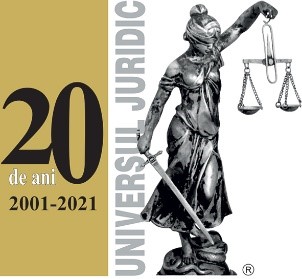Despre executorialitatea fără titluri
lazar.george-alexandru[at]drept.unibuc.ro
Cuvinte cheie:
enforceability, on‑line contracts, no signatureRezumat
In this article, we aim to provide the context and evolution of the notion of enforceability in the case‑law of the High Court of Cassation and Justice. Four judgments outline the diachronic development of enforceability in Romanian law.
In 2006, through Decision XIII of March 20th the High Court told us that enforceability is a matter of procedural law, and thus it is connected to the instrumentum probationis and follows the rule of immediate applicability upon entry into force. In Decision no. 4/2014, the High Court seemed to take a different approach, affirming that enforceability is tied to the substantial right, not the material document which serves as proof of the contract.
Due to recent technological developments, on‑line credit contracts have become common in practice. Lower courts of law have been addressed to enforce these contracts, which do not bear the signature of the debtor. The decisions of the courts were divergent, and a request for a preliminary interpretative decision by the High Court of Cassation and Justice was lodged. The High court rejected it as inadmissible in 2018, but gave important indications as to what the solution should be.
In 2019, the issue was raised again before the High Court, in a different procedure. This time, following in the footsteps of the 2018 decision, it delivered a clear answer to the question at hand. On‑line contracts are enforceable, even though they are not signed by the debtor.
The upside is that we have a solution to our issue. The downside, as we will show, is that it disregards the procedural framework of our legal system. It solved a matter of substantial law, at the cost of the procedural formalities of enforcement. In our opinion, it gives way to new issues and more divergent case‑law.
Keywords: enforceability; substantive right; on‑line contracts; no signature; Decision no. 23/2019.
Publicat
Versiuni
- 21-04-2023 (2)
- 13-09-2022 (1)









